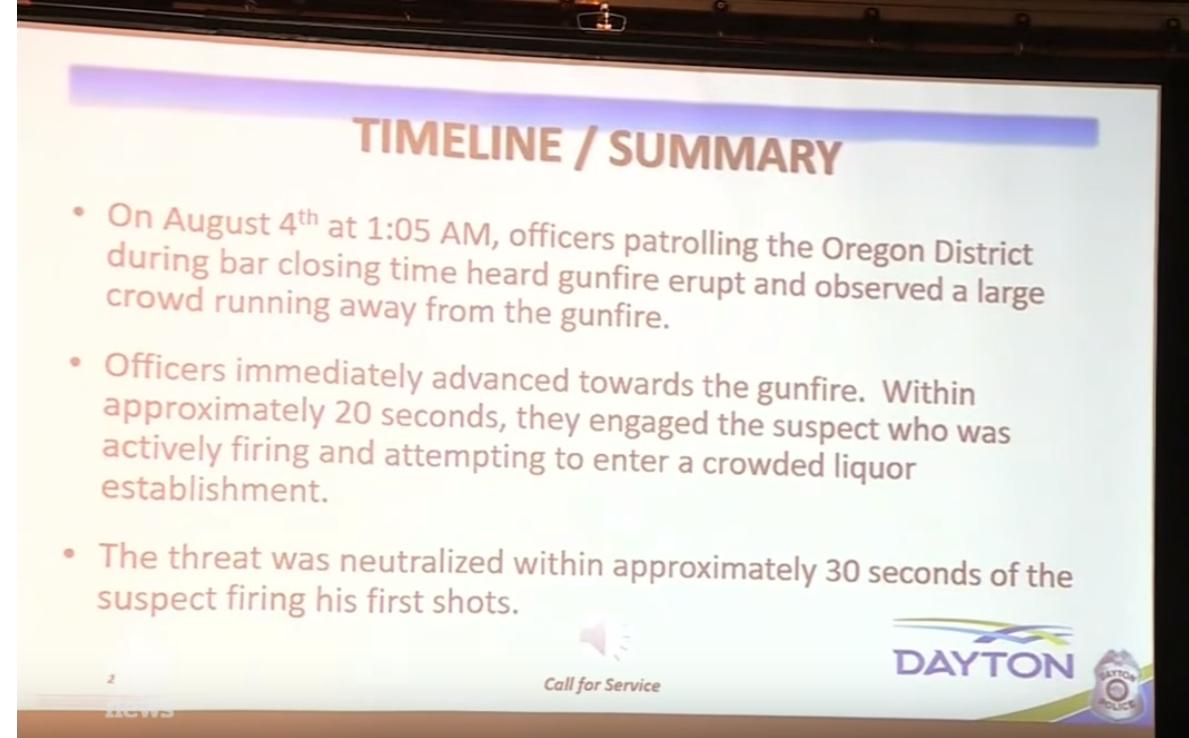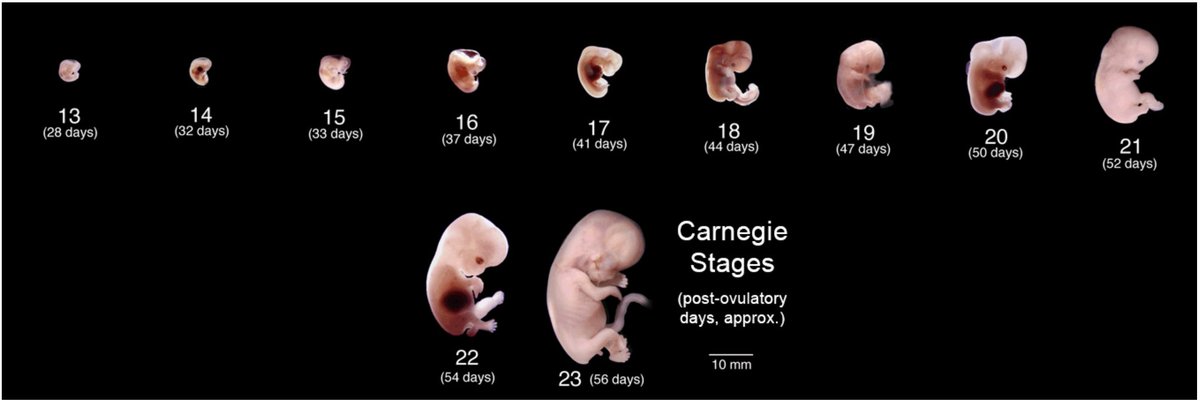It's hard to know if it's more remarkable that the Dayton police were able to take out the shooter so quickly — less than a minute, according to reports — or that he was nonetheless able to kill and injure so many in in that time.
"More good guys with guns" is not unreasonable as one among many parts of a national response, but this sure shows its limits.
At the press conference, Dayton PD says they took out the shooter within 30 seconds of the first shot. 37 people in 30 seconds. This is... incredible if true. 

I don't mean to say it's doubtful. I mean it's incredible.
(The surveillance video they play later in the conference leaves little room for doubt about the timing — it looks like 33 seconds from first to last audible gunshot.)
I'm not finding any information at the moment on whether all of the injuries are from gun shots, or include falls or trampling.
Me (watching a bomb level a building): This is incredible.
People responding to me on Twitter: Well actually, if you've ever taken a chemistry class--
People responding to me on Twitter: Well actually, if you've ever taken a chemistry class--
• • •
Missing some Tweet in this thread? You can try to
force a refresh





